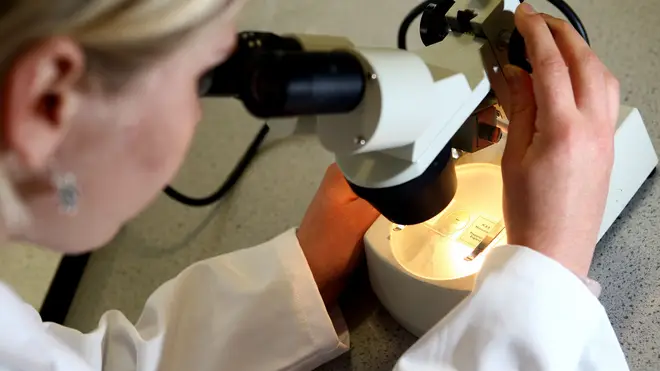
Tom Swarbrick 4pm - 6pm
25 January 2021, 00:04

The new system will be based around ultrafast lasers.
A new laser system that could help surgeons remove cancer more precisely and safely is being developed by scientists.
Experts at Heriot-Watt University in Edinburgh are developing a new system that will help surgeons distinguish cancer cells in much better resolution, and remove them without damaging healthy surrounding tissue.
Professor Jonathan Shephard has been given £1.2 million by the Engineering and Physical Sciences Research Council (EPSRC) to develop the system.
The new system will be based around ultrafast picosecond lasers that deliver energy in a series of pulses that are one trillionth of a second long.
The team has already proved the concept works for colorectal cancers, and are now working with clinicians at the University of Leeds and Leeds Teaching Hospital NHS Trust to develop the new system for brain cancers.
Professor Shephard said: “Previously we focused on colorectal cancers. We proved in the lab that our laser system can remove cancer cells in a way that restricts damage to the surrounding, healthy cells – within the width of a human hair.
“Because the laser pulses are so short, there is no time for heat to burn the surrounding tissue, which is what happens with current surgical tools.
“We’re building on our understanding of lasers in colorectal cancer surgery towards clinical application, and working on adapting it for brain, head and neck cancers, where it could have huge benefits for patients.
“The most important principle of any cancer surgery is to ensure that all cancer cells are removed; failure to do so will result in the cancer coming back.
“This is an ultimate test of precision, even microscopic loss of healthy tissue and damage to nearby vital structures can have severe functional consequences and a huge impact on quality of life.”
The team will also focus on developing a flexible, optical fibre based system that can target and remove cancer cells two orders of magnitude smaller than current technology.
Professor David Jayne, a consultant surgeon at Leeds Teaching Hospital NHS Trust, said: “Surgical lasers open up exciting new approaches for cancer surgery.
“The precision of a laser combined with imaging to accurately discriminate cancer from normal tissue will greatly enhance the ability of surgeons to completely remove cancers with minimal side-effects for patients”
The team will be working on developing the system over the next three years.